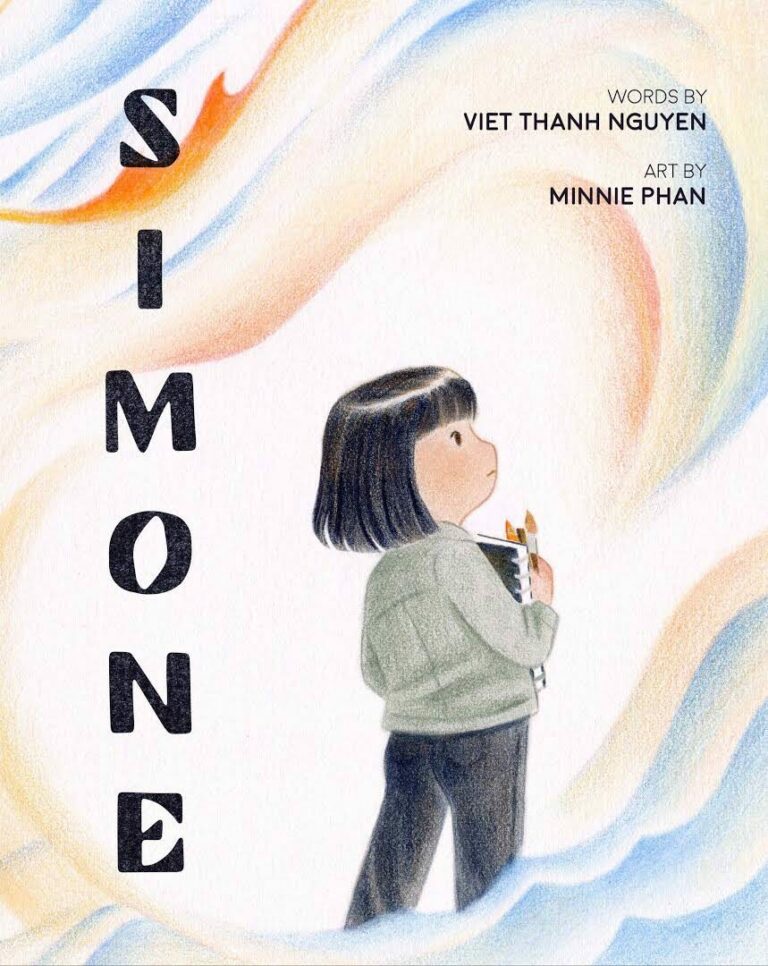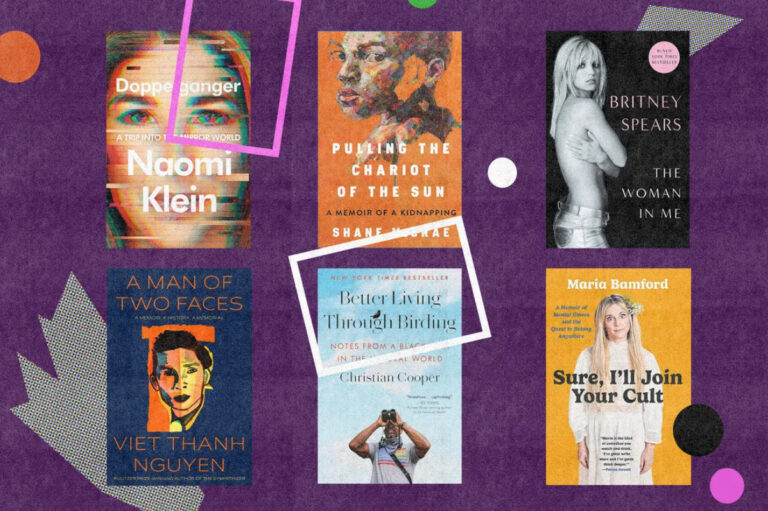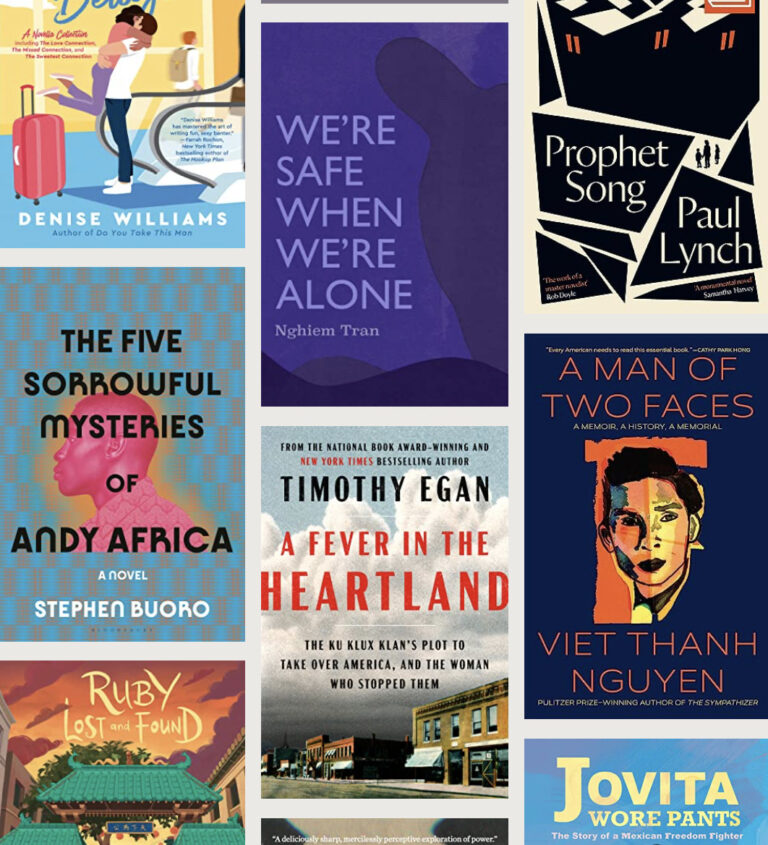Pat C. Hoy II reviews Viet Nguyen’s novel The Sympathizer for The Sewanee Review literary magazine. This review appeared in volume 123, Fall 2015.

I have a confession of my own to make about Viet Thanh Nguyen’s intriguing confessional, The Sympathizer. Tour de force that the novel is, its convoluted but compelling plot and my own animated desire to unravel its mysteries sent me on a spellbound chase, yearning for resolution and relief. In haste I raced past many of the book’s haunting images, failing even to absorb the full force of Nguyen’s biting critiques of American and Vietnamese cultures—images and critiques that leave us not only informed but also disturbed by his revelation of national blunders, ethnic shortsightedness, and, what seems to him, the inevitable, unchanging course of human history.
I intend, here at the outset, to call attention to the novel’s narrative power rather than my own initial, hasty reading. So taken was I by the first quarter of the book that I believed myself to be reading an actual confession, not of a fictive character but of Nguyen himself. I had begun the book, as I always try to do with new books, free of the cant of commercial criticism, the hype of blurb, and my own inherent preconceptions about literature—in what Gaston Bachelard calls a state of “non-knowing.” He reminds us in The Poetics of Space that for the serious reader “knowing must … be accompanied by an equal capacity for forgetting.” Acquiring this “phenomenological attitude” allows us, during our first reading, to be caught up in the movement of a book—passively participating and being entertained as a child might be. But Bachelard also reminds us that “after the sketchiness of the first reading comes the creative work of reading.”
When I began the book, I did not know, had not bothered to see, that I had a novel in hand rather than a memoir. So the character himself, the unnamed narrator of a compelling spy tale, and the quality of the narration seized me, leaving me almost breathless in my pursuit of an ending—hooked as I was on verisimilitude and the thrill of the chase.
Eventually my pleasure was interrupted by a labored account of the filming of a war movie the narrator had been called on to advise, and I paused for awhile to begin the “creative work of reading.” But the tale itself, despite occasional extravagances and convolutions of plot, called me back into the chase. The fictive character, distinguished from his creator, still carried the day, still compelled me to care what became of him—and to care as well about what Nguyen would make of him for the novel’s sake. Across the novel Nguyen creates a dramatic sweep of human history grounded in a highly particularized tale of male camaraderie. The novel’s epic aspirations ride confidently atop the revelatory emotional currents generated by this unlikely male brotherhood.
A bastard born of the union of a French priest and a Vietnamese domestic, the narrator is, as the novel’s first sentence tells us, “a spy, a sleeper, a spook, a man of two faces.” We learn quickly that he can see at least two sides to every issue, and we begin to know from his experiences that such a capacity complicates both his personal and his professional life. He lives and works among the sectarian, straddling, as he must, two cultures whose ideas have become blindingly dogmatic.
But trouble and complication are the narrator’s birthright. Educated in America before the fall of Saigon, he returns to Vietnam to serve eventually in the Army of South Vietnam where his western education, his sharp but subtle mind, and his capacity to accommodate stand him in good stead with the general he serves as advisor and confidant. Those qualities also help him fashion the mask of the subversive that he must inhabit to survive.
The tale proper begins in the midst of Saigon’s fall and takes the narrator, selected members of the general’s staff, and the general’s immediate family to America by way of Guam. They settle in California, into what becomes a diaspora, and, over the course of a year, begin to plan for an invasion of Vietnam that will be launched from Thailand. While the narrator serves the general and participates in the planning and training for this invasion, he also establishes a life of his own while rooming with Bon (an unquestioning South Vietnamese loyalist), who has also come to America to continue serving the general. Bon is one of the narrator’s special friends from adolescent years, boys who called themselves the Three Musketeers and who were bound by a blood-sealed oath, sworn after their collective triumph over school-yard bullies. Man, the third member of the group, stayed in Saigon to witness the fall and to emerge, finally, as a professional in the Communist regime.
The narrator, split by nature, manages to remain loyal to both Bon and Man despite their political difference—and to survive because of them. Their story, one of many complementary subplots in the novel, gives rise to our eventual understanding of the importance of sympathy and suffering in the larger story, and to our understanding of their relationship to the narrator’s values … and I venture to say, to those of his creator, Nguyen himself.
The narrator’s uncanny ability to sympathize with his enemies may well stem from knowledge gained early in life from his mother’s body. The trace of this knowledge extends across the novel and undergirds, at various essential moments, the narrator’s sense of himself while highlighting an empathy that belies his characteristic detachment. Among his male friends and compatriots, this other knowledge is a guarded secret, something that he reveals only partially to Man and Bon during adolescence.
We first learn about the narrator’s childhood experience in the context of death and humiliation long after the experience with his mother. The narrator is in America and has been directly responsible for the murder of a man he mockingly calls the “crapulent major,” another member of the general’s entourage. Although Bon actually does the killing, he is accompanied by the narrator, who has privately accused the major of espionage as a way of diverting the general’s attention from his own double-dealing.
Aided by Bon and the general, the narrator must eventually learn that “there’s no greater knowledge” to be gained than in “killing a man.” But neither Bon nor the general knows that the narrator has already acquired from his mother and her family a knowledge that neither of these men can fathom, knowledge that neither would consider valuable. Nguyen chooses to reveal this knowledge to us at a moment when the narrator is haunted by the killing of the “crapulent major” and stung by a rejection from the auteur who is filming the war movie the narrator has been asked to advise. This context underscores both the formative nature of this moment with his mother and Man’s contribution to his understanding of it. It suggests too that Man is likely always to be the narrator’s most important ally.
Nguyen frames this event in the context of rejection so that we dwell on the suffering of innocents, linking in our minds the narrator’s childhood predicament with the fate of the crapulent major’s wife—while highlighting the narrator’s odd concern about the wife’s financial welfare following her husband’s murder. The childhood scene suggests an explanation for this unusual concern.
During a New Year’s celebration, the six-year-old narrator is wronged by his mother’s family, his blood aunts and cousin; they deprive him of the joy of receiving the special gift due all children on such an occasion: the gift of money and recognition, bringing with it a sense of belonging. Instead the “the blood aunts” slight him, diminishing his gift and reminding him of his “half-blooded” status—as one “calculating cousin” told him, “You’re a bastard.” Seeking solace from his mother, he learns instead from her that he has been taught a valuable lesson about education and that “one must be grateful” for such lessons.
But there is a deeper, more profound revelation that no one knows about but the narrator:
Oh they’ll see! my mother wept, squeezing me with such force I was nearly breathless, my face pressed against one comforting breast while my hand squeezed its plush other. Radiating through thin cotton fabric was the hot, rich muskiness of a young woman’s body after a humid day spent mostly on feet or haunches, preparing food and serving. They’ll see! You’ll work harder than all of them, you’ll study more than all of them, you’ll know more than all of them, you’ll be better than all of them. Promise your mother you will! And I promised.
He “shared this story with only two people, Man and Bon, censoring just the part about my mother’s breasts.”
When told, Bon spoke only of revenge, but Man offered a more “measured” response; he was, the narrator tells us, “calm, analytical, and precociously dialectical-materialist in his attitude.” Man explained that the red envelope that was supposed to contain the magical gift for each child was in fact a “symbol … of all that’s wrong. It’s the color of blood and they singled you out for your blood.” The narrator learned in that exchange with Man that red is not the color of “fortune and luck” as the wrongdoers believed; red, instead, “is revolution,” revolution against those whose fixed ideas limit their vision, causing them to see only the things in the world that work for them. “But,” Man tells the narrator, “you see the lie beneath those things because you never got to take part. You see a different shade of red than them.” And with that revelation, the narrator tells us, “in that throbbing vision the world began to make sense to me, how so many degrees of meaning existed in a single color, the tone so potent it must be applied sparingly. If one ever sees something written in red, one knows trouble and change lie ahead.” One knows of the inherent danger of fixed ideas.
This double lesson—the one gleaned from the comforting, highly charged body of a woman and the other from the mind’s many-faceted splendor brought into clarity by a precocious blood brother—travels with us and with the narrator for the duration of the tale. These are the gifts of insight that inform his behavior and our understanding of his complexity—a spy, sleeper, spook—yet, even more, a multifaceted agent with a yen for nuance and sympathy and a deep yearning for the compensatory comforts of a woman’s body.
But there is more to this story than those lessons, and in our effort to understand Nguyen’s vision, we must remember that we are reading a novel that is in fact a confession and that this confession is written to the commandant of a detention camp where the narrator spends a year following the failed invasion. Captured and confined, the narrator, by his own account, has written and rewritten this confession that seems on the one hand to be only the tale of one man’s struggle to survive, and on the other to be a vexing account of human history.
The act of writing the confession is a crucial part of the narrator’s “reeducation,” the price his captors exact from him—his chance to redeem himself by confessing and adapting to the needs of others. As an essential part of his spying mission, the narrator had sent coded letters to Man’s aunt in Paris; these letters betrayed the general and his plans for invasion, identified key players, and provided up-to-date accounts of progress. Man, having read the letters, had warned the narrator not to take part in the invasion, but the narrator’s interest and participation in the training afforded the perfect cover for his subversive activities. And yet neither Man’s directive nor the exigencies of spying account for the narrator’s decision to put himself at risk with the Communist regime. He believed that Bon could not survive without him, could not live through combat solely on the strength of his single-minded political convictions. So sympathy and brotherly love led him to ignore Man’s warning. He went with Bon, not to develop or confirm his manliness, not to fulfill political obligations, but to protect his brother.
The novel’s, or I should say, the confession’s long chain of consequences, leading from the fall of Saigon to America and eventually back to Vietnam, culminates in the narrator’s torture by sleep deprivation, administered at the hands of a faceless commissar, a “voice” reminiscent of Kurtz deep in the heart of another darkness. But this Kurtz is neither hallucinatory nor cursed by what the darkness has revealed to him. He is there in the prison to ensure that the captured narrator sees what he cannot see by himself—that nothing, no idea worthy of exciting revolution, can ever survive its enactment by the revolutionaries and those who followed in their wake. All revolutionary ideas are destined to become dogma, creeds for the disciples who turn against all nonbelievers.
But on a more personal level this Kurtz is there to ensure that the narrator never loses sight of the fact that “the true optical illusion [is] in seeing others as undivided and whole, as if being in focus is more important than being out of focus.” Loosely translated, the narrator must reaffirm with himself the gift of his own complexity. The agent of this reeducation, the deus ex machina in this story, is Man himself; he is the “voice,” the faceless commissar who brings his friend back to his senses through torturous sleep deprivation—brings him to see, finally, that their shared sensibility allows them to grasp “the paradoxical fact that nothing is, indeed, something,” that knowing depends on being in a perpetual state of division, ever mindful of the dangers of a single vision.
Man, severely disfigured by a misplaced napalm attack on the last day of the resistance, has spent the intervening years serving the Communist regime, all the while following his friend’s communiqués and his progress. Knowing that the invasion will fail, he comes to the detention center to ensure his friends’ survival. And in the end, both Bon and the narrator are set free by Man’s wily maneuvers. Man, forever attached to the regime and isolated from his family, will know only the freedom of his mind’s play. But that does not keep him from liberating his bothers.
Sitting here now at the end of my own confessional, I know full well that I have emphasized brotherly love and the improbabilities of plot over the more subtle, sometimes haunting, sometimes horrifying, beauties of language and image. But I trust that you cannot imagine my praising a novel so dependent on contradiction and implausibility were these usual impediments to pleasure not turned into intriguing revelations about ourselves and the cultures that inhabit and often control us.
Imagine, if you will, sitting in conversation with the commandant of the reeducation camp as he presents his single-minded case against the West; he slips off a cloth that covers a specimen in formaldehyde. Sitting there with him, you see a “naked pickled baby with one body but two heads, four eyes shut but two mouths agape in permanent mongoloid yawns. Two faces pointed in different directions, two hands curled up against the chest, and two legs spread to reveal the boiled peanut of the masculine sex.”
You are exhorted by the commandant: “Imagine what the mother felt. … Or the father. Imagine the shrieks.” And when you and I do imagine, in the context of this novel, we see both an American atrocity (a defoliant baby), created inadvertently in the name of freedom, and an image strangely affiliated with the two faces of our narrator, pointing in two different directions. Those two faces also speak of freedom and the importance of the double vision.
We pause, under Nguyen’s influence, to consider what else we creative readers might make of these images and their charged relationships? What do they tell us about ourselves? How do they speak to you?
Pat C. Hoy II has now retired from full-time teaching at New York University, where he directed the expository writing program. His essay “Warring with Words” earned this magazine’s Monroe K. Spears Prize in 2014 for the best essay.


